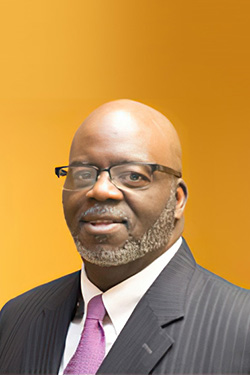
There is something especially important being discussed right now across the State of Illinois. That something is redistricting. I have testified in two committee hearings on this matter, one moderated by Rep. Jehan Gordon-Booth and the other by Sen. Omar Aquino.
Redistricting is the process of drawing the electoral district boundaries in all states. These districts determine individual and community representation at the local, state and federal levels.
Why does redistricting matter? According to the Brennan Center for Justice, “Redistricting affects political power. It determines which party controls Congress and state and local governments across the country. Consequently, redistricting has a direct bearing on what matters a legislature chooses to tackle, and which to ignore.”
Why It Matters In Peoria
In 2016, Wall Street 24/7 reported that Peoria was the worst place in the country for Black Americans to live. Around the same time, the National Resource Network—which had just completed a two-year study on Peoria—told us that we were in crisis. One of the details that sticks out in my memory of that report is that poverty is not limited to just one area of Peoria; it’s spread throughout the city. More recently, a study based on 2019 data from the FBI named Peoria the 15th deadliest city in the country.
Our NAACP building is located in the 61605 zip code on the Southside of Peoria. I was born and raised about a block away, and I can tell you the neighborhood has changed dramatically. I grew up in the mid-‘60s, ‘70s and early ‘80s. During that time, homeownership was prevalent—which meant the houses and yards were immaculately kept. It seemed as if everybody knew everybody else, which gave us a real sense of community.
Yet Peoria’s Southside has been neglected for decades, just as the Near Northside and East Bluff has been. Over time, with multiple economic downturns, the crack epidemic of the 1980s and a confluence of other factors, homeownership declined dramatically. This in turn led to dilapidated houses which have had to be torn down, leaving an abundance of vacant lots.
These neighborhoods are the major feeders to our largest school district, in which about 62 percent of the students are Black. School funding depends on the tax dollars collected from homeowners. But where there are so many vacant lots, no taxes are collected—which leads to the chronic underfunding of our schools.
Education is the currency of the 21st century—a sure way out of poverty. Yet this underfunding undercuts education, which leaves far too many stuck in a cycle of poverty.
Seeking Equity
Representation matters. In order to achieve the positive outcomes that are desired, the redistricting map needs to be fair and equitable. Equity means getting individuals the tools and opportunities they need to be successful, and that can only be achieved by someone representing their interests. The process of redistricting must be fair and equitable and free from the possibility of gerrymandering.
Gerrymandering refers to the manipulation of district lines to protect or alter political power. It’s one of the reasons you see some in Congress being elected repeatedly. The word is believed to have first appeared in a national newspaper in 1812. It was derived from Massachusetts Gov. Elbridge Gerry, who signed a redistricting map for his state which included a congressional district that looked like a salamander. The word has survived more than 200 years—and so has this offensive practice.
Always remember: there are no permanent friends or no permanent enemies; there are only permanent interests, which means representation matters! PM
Pastor Marvin Hightower is president of the Peoria NAACP and senior pastor at Liberty Church of Peoria.
- Log in to post comments

